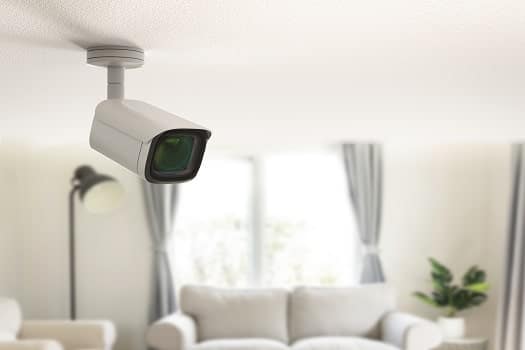Addressing Wandering in Aging Adults with Dementia
Wandering is common among seniors with dementia, but this can be distressing for family caregivers and dangerous for older adults living with dementia. Fortunately, there are ways to prepare. Learning more about the signs and causes of wandering can help you prevent it when caring for an aging loved one with dementia or Alzheimer’s.
Causes
There are many reasons for wandering, which can change depending on your loved one’s mood and objectives. For example, your loved one could start to walk away due to agitation or lack of rest.
Your current location could also be a factor, especially if your loved one is uncomfortable or if certain aspects of the environment remind them of people, places, and things from the past. Instead of remaining still, your loved one could begin to wander, looking for these individuals and locations from the past reappear.
Caring for senior loved ones with dementia can be challenging for families who don’t have expertise or professional training in dementia care, but this challenge doesn’t have to be faced alone. Families looking for top-rated dementia care providers can reach out to Companioa by Institute on Aging (IOA). From specialized dementia and Alzheimer’s home care to our Adult Day program and Personal Concierge services, there are many ways we can make life easier for seniors and their loved ones
Warning Sign
If you hear your loved one discussing former obligations from the past, such as working or taking on responsibilities that revolved around you or your siblings, he or she could be on the verge of wandering. In your loved one’s mind, he or she still needs to accomplish these goals or commitments, so they might begin walking away.
Other signs to watch out for include your loved one continuously asking to go home when they’re already currently there. If your loved one believes they need to leave—even if they’re where they’re supposed to be—wandering could be imminent.
Typical Occurrence
Dementia impacts every senior differently, so wandering behavior could start soon after your loved one is diagnosed, or it could appear in more advanced stages of the diagnosis. Many seniors wander in the middle stages, pacing back and forth within the home or backyard, eventually expanding to wandering away from the property.
Your loved one may wander once or could attempt to walk away countless times. This will vary as the condition progresses, but you must monitor it and incorporate prevention strategies into your caregiving routine.
Caring for seniors with dementia can be challenging for family caregivers. Luckily, there is in-home dementia care families can rely on. Professional dementia caregivers help seniors with dementia stay safe and comfortable at home by preventing wandering, providing cognitive stimulation, and assisting with household chores.
Prevention
To prevent wandering, keep the home secure and look for ways to manage hostile or aggressive behavior. Keep all doors and windows closed and locked. If there are alarms in place, make sure to keep these alerts on, even if you’re inside the home. Doing so could warn you if your loved one attempts to leave the house without your knowledge.
When you notice your loved one becoming restless, find ways to manage that tension. You can incorporate physical exercise, naps, or activities that keep your loved one engaged.
If your loved one wanders away and you cannot find him or her immediately, call the police. Make sure to have a list of family and friends to contact who can help you, especially if a search is necessary.The responsibilities involved in caring for a loved one with dementia can sometimes feel overwhelming, but help is available. Even when families choose to take on caregiving duties, there may come a time when they need a trusted dementia home care provider. Families need respite from their caregiver duties so they can focus on their other responsibilities, and some seniors need around-the-clock assistance that their families are not able to provide. Companioa by IOA is here to help. To learn about our quality-assured services, give us a call today at (415) 750-4111.







